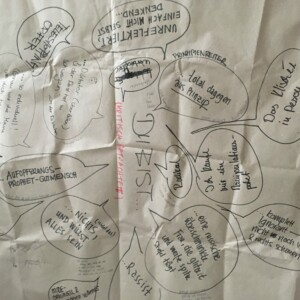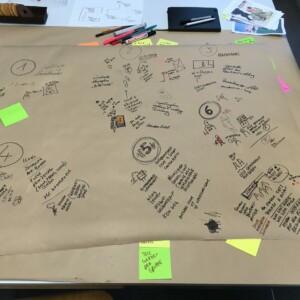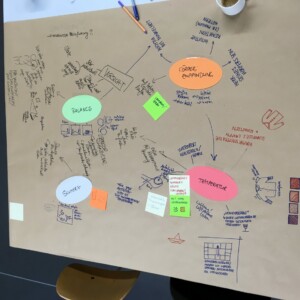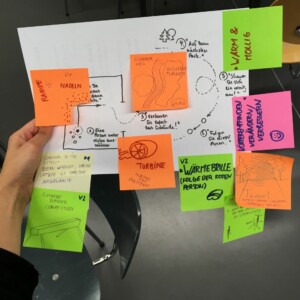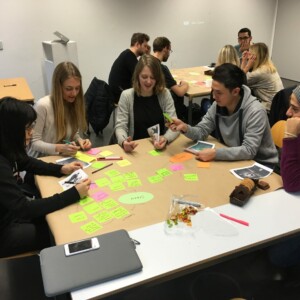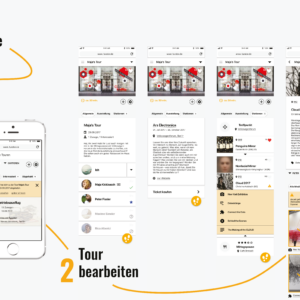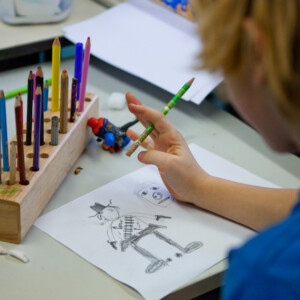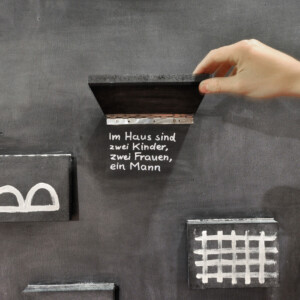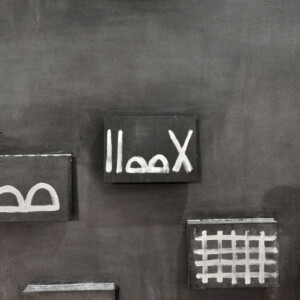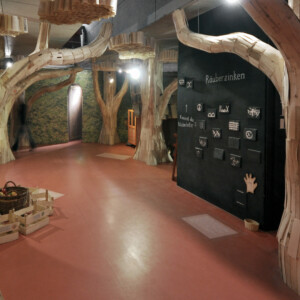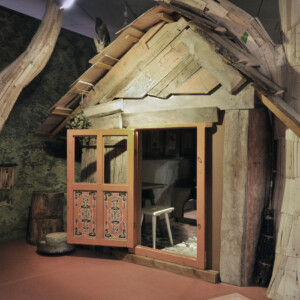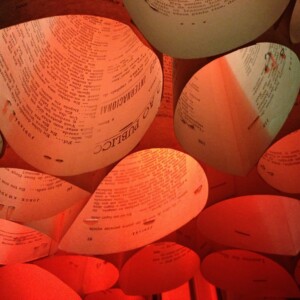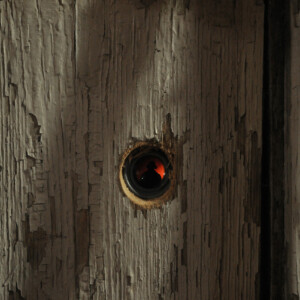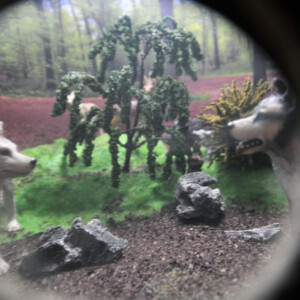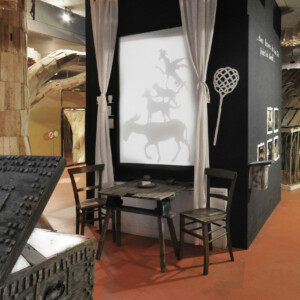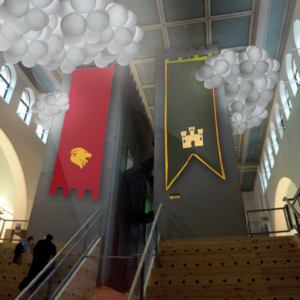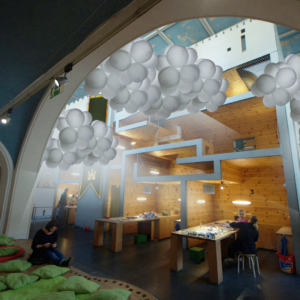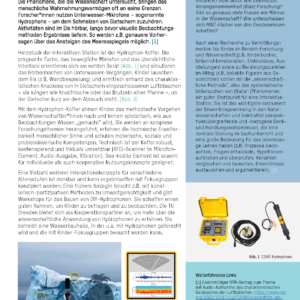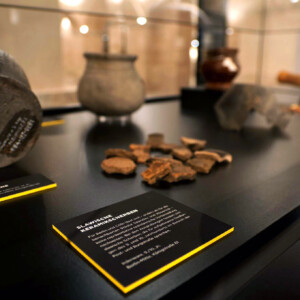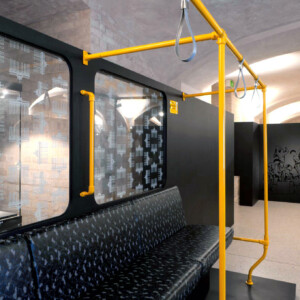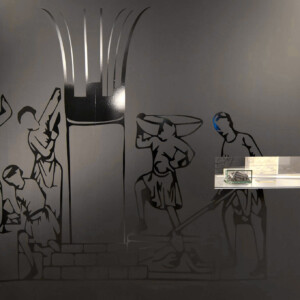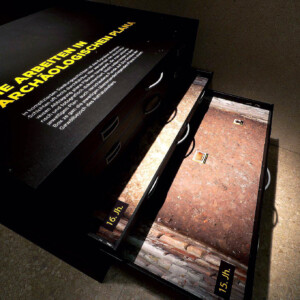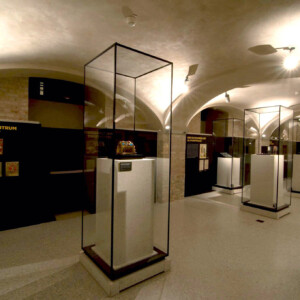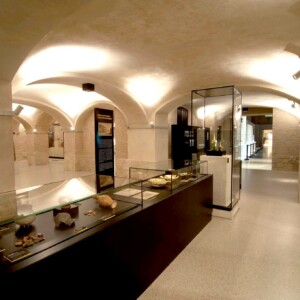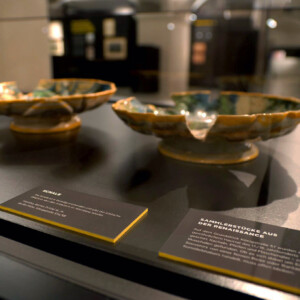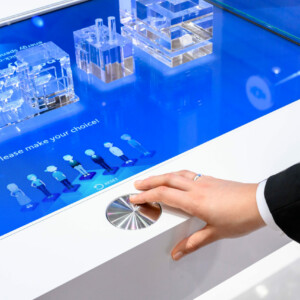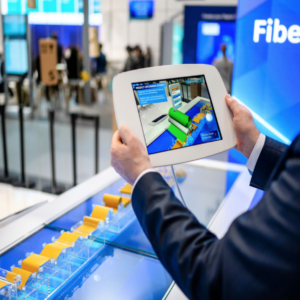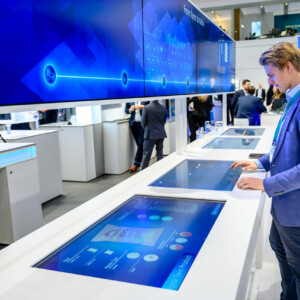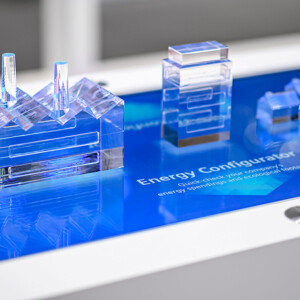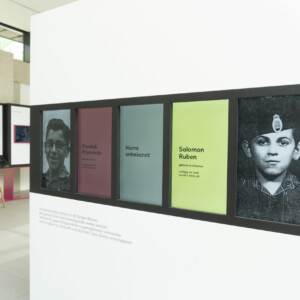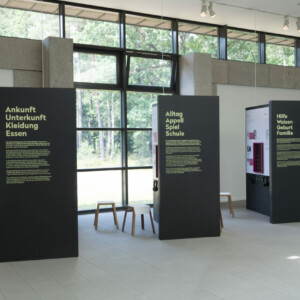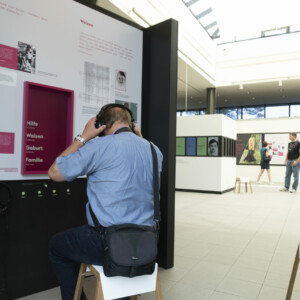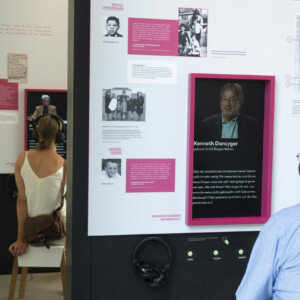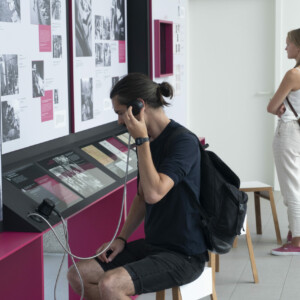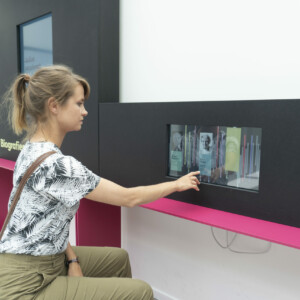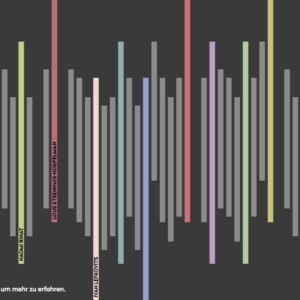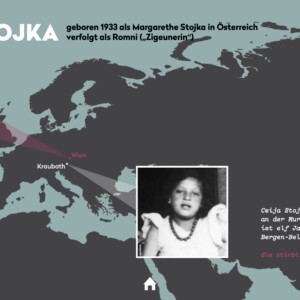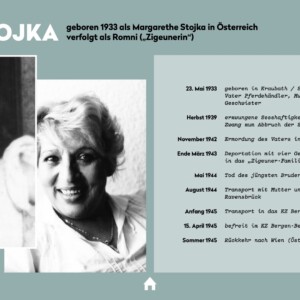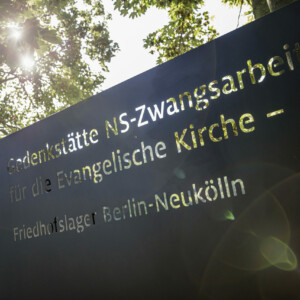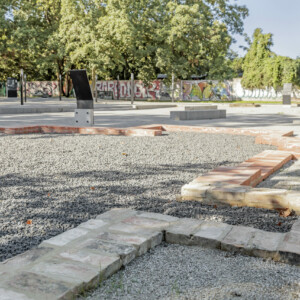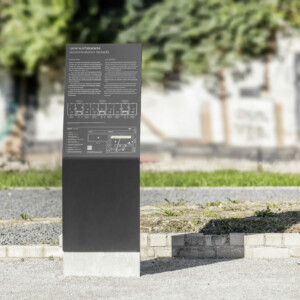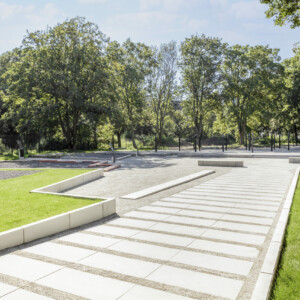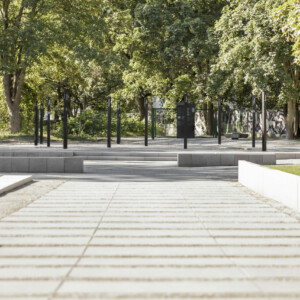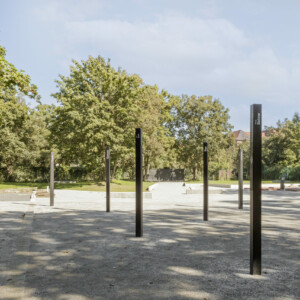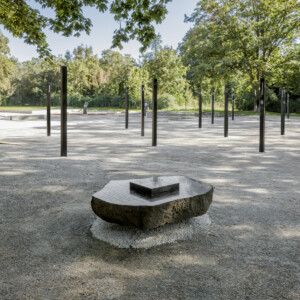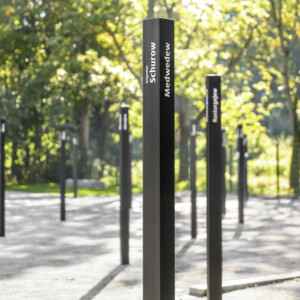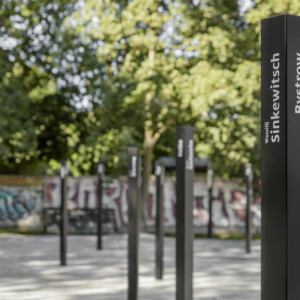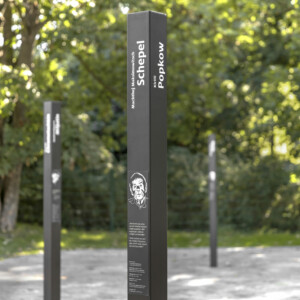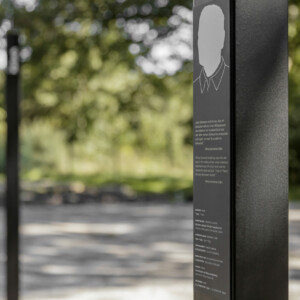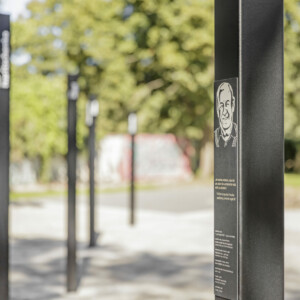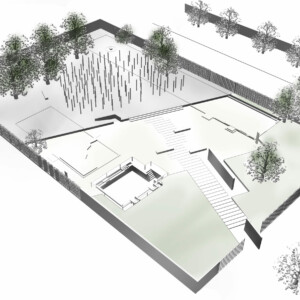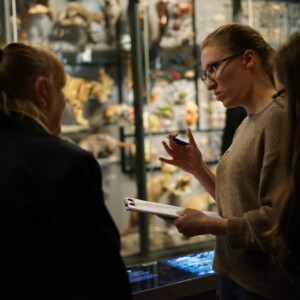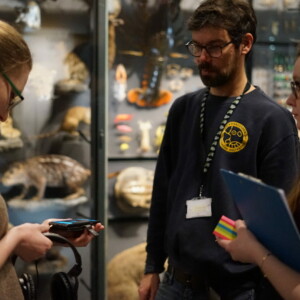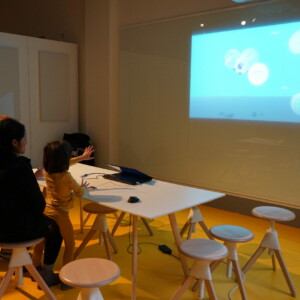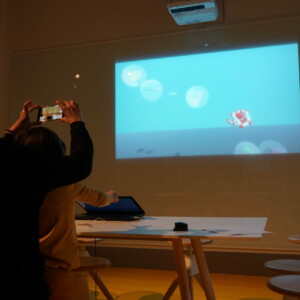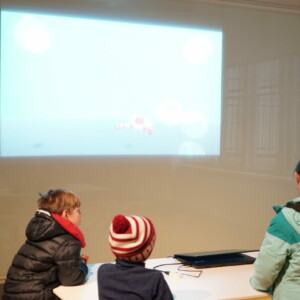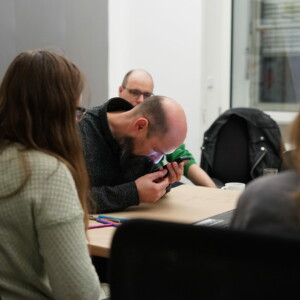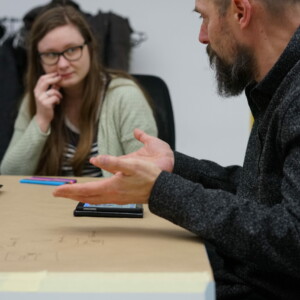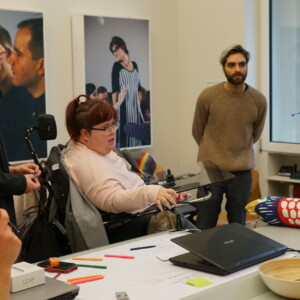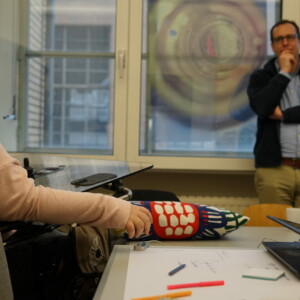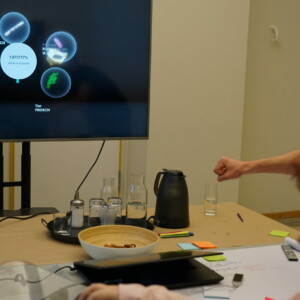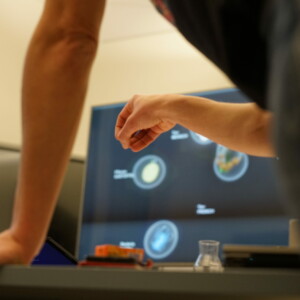
Hej, ich bin Nicole.
Ich beforsche, gestalte und entwickle Ausstellungen und interaktive Vermittlungsmedien. In meiner Dissertation untersuche ich wie (partizipative) Gestaltungsprozesse zu der Inklusion von Menschen mit Behinderung in Museen betragen können.
Forschung zu Inklusion, Design und Vermittlung
Als Doktorandin und wissenschaftliche Mitarbeiterin im Forschungskolleg SENSING: Zum Wissen sensibler Medien (Start: 2018, gefördert von der VolkswagenStiftung) forsche ich zum Thema »Inklusion an der Schnittstelle von Mensch und Maschine. Co-Design in der digitalen Kulturvermittlung« und untersuche Museen als partizipative Orte für alle, die von, mit und für Menschen mit Behinderung gestaltet werden.
Praxispartner
Inklusionsberatung von KOPF, HAND + FUSS in Berlin, Application Lab Mediasphere for Nature (Museum für Naturkunde in Berlin), Verbundprojekt Digitale Vermittlung museum4punkt0,



Tätigkeiten
Konzeption, Organisation und Betreuung von Workshops, Kooperationen und Veranstaltungen (Auswahl)
- Workshop Everyday AI: Künstliche Intelligenz in gegenwärtigen Interface-Kulturen (2023) in Weimar, Link
- Internationale Tagung Other(ing) Sensing. Practices, Politics and Ethics of Sensitive Media (2021), Hybrid (Potsdam und online), Tagungsbericht
- Co-Design-Projekt Partizipatives Design – Prototypen für inklusive Vermittlungsmedien in Museen (2019/20), zusammen mit: Multimedia-Lab für Wissensvermittlung Mediasphere for Nature (Museum für Naturkunde in Berlin), Inklusionsberatende von KOPF, HAND + FUSS in Berlin und Student*innen der FH Potsdam
- Workshop The Knowledge of Sensitive Media (2019) – transmediale Festival für Medienkunst und digitale Kultur
Vorträge und Publikationen (Auswahl)
- Artikel Medien der Zuwendung. Ein Gespräch über Interfacing-Konstellationen (11/2022) von Nicole Schimkus, Alice Soiné und Daniel Stoecker, in: Automatisierte Zuwendung. Affektive Medien – Sensible Medien – Fürsorgende Medien, Schüren Verlag
- Vortrag Interactions for everybody!? On creating inclusive technologies and the generative potential of disability, RISE IMET 2021 (International Conference on Emerging Technologies and the Digital Transformation of Museums and Heritage Sites)
- Vortrag Designing configurations that matter. (Re-)imagining HCI through dis/ability, New Materialist Informatics 2021
- Vortrag Encountering the Built World: On Fitting and Misfitting, Summerschool Mimesis and Composition: Anthropological Perspectives on Technology and Art, 2020
- Lab Augmented Attention Lab Bratislava, Prototyp wurde auf dem Sensorium Festival 2019 ausgestellt
Lehre an der FH Potsdam und Universität Potsdam
Öffentlichkeitsarbeit
Zusatzqualifikationen
- Einjähriges Zertifikatsprogramm Junior Teaching Professionals
- Seminar Kommunikative Konfliktbewältigung
Projekte und Werdegang.
Mein interdisziplinärer Werdegang verbindet Kenntnisse von Raumkonzeption, Design und digitalen Technologien mit aktueller Forschung zu Behinderung, Inklusion und kulturpolitischen Diskursen.
Ich habe ein Bachelorstudium in Innenarchitektur (Fachhochschule Wismar) und ein Masterstudium in Interfacedesign (Fachhochschule Potsdam) absolviert. Derzeit befinde ich mich in der Endphase meiner Promotion in der Europäischen Medienwissenschaft (Universität Potsdam).
Seit 2013 wirke neben- und hauptberuflich an der Konzeption, Gestaltung und Umsetzung von Ausstellungen, interaktiven Medien, und Hands-on-Exponaten mit. Seit 2018 forsche, lehre und arbeite ich als wissenschaftliche Mitarbeiterin im Forschungskolleg SENSING: Zum Wissen sensibler Medien.
Wissensvermittlung
für Kinder und Erwachsene
Ein neues Kindermuseum
Kl!ick Kindermuseum Hamburg
“Hochform” (Eröffnung 2024)
#Entwurf Innenarchitektur #Grobkonzept für themenbezogene Exponate #Worshops mit Schulklassen #Projekt-Management #Entwickeln und Durchführen zweier Lehrangebote
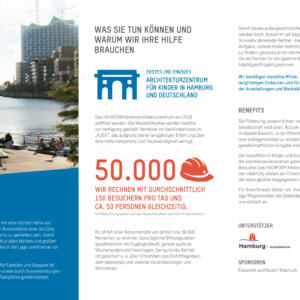
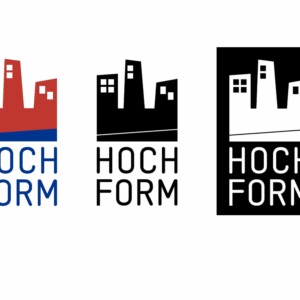
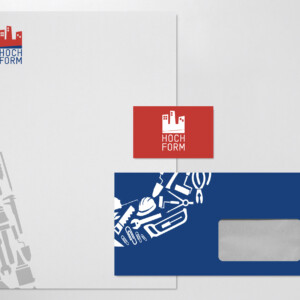
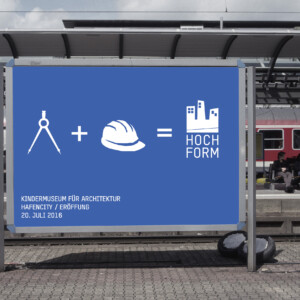
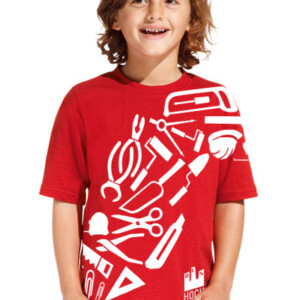
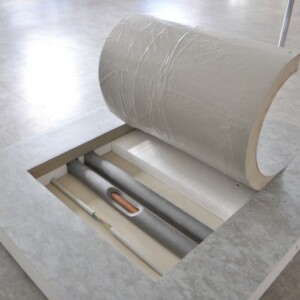

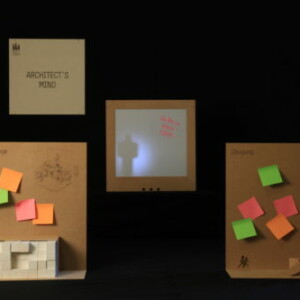
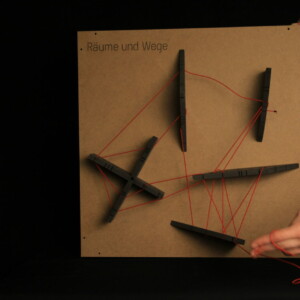
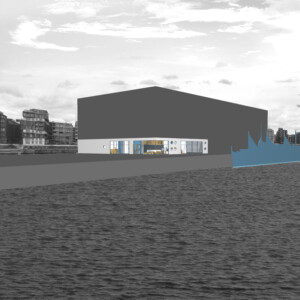
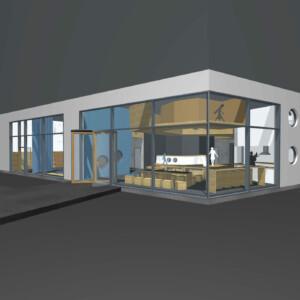
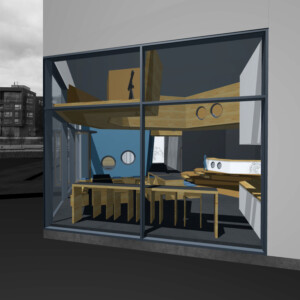
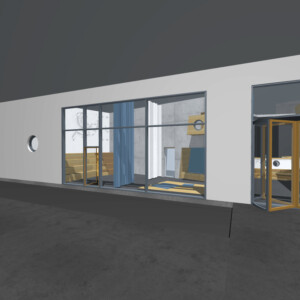
Dauerausstellung
Machmit Kindermuseum Berlin
“Erzähl mir bloß (k)ein Märchen” (2014)
#Grob- und Feinkonzept für Innenarchitektur und Vermittlung #Interviews mit Kindern, Prototypen und Testing #Implementierung #Projekt-Management
Sonderausstellung
Neues Museum Berlin
“Untergrund. Das alte Rathaus von Berlin” (2013/14, verlängert)
#Innenarchitektonischer Entwurf #Vermittlungskonzept für Exponate und Ausstellung #Projekt-Management
Messeauftritt
Hannover Messe
Siemens AG (2019)
#Vermittlungskonzept und Storyboards für interaktive Medienstationen
Erinnern und Gedenken
Wanderausstellung
Gedenkstätte Bergen-Belsen
“Kinder im KZ Bergen-Belsen” (seit 2018)
#inhaltliche und grafische Feinkonzeption #Entwicklung von Video- und Medienstationen #Projekt-Management
Gedenkstätte
Evangelischer Kirchenkreis Neukölln
“Kirchliches NS-Zwangsarbeiterlager Hermannstraße” (Eröffnung 2023)
#Grobkonzept für Wegeführung und (Landschafts-)Architektur der Gedenkstädte #Konzept zur Wissensvermittlung zu den Ausgrabungen
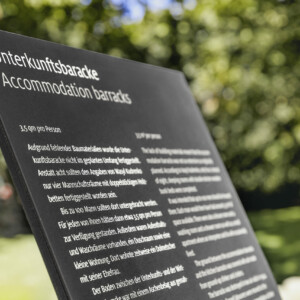
Link zur Ausstellung (veraltet)
Prototypen für museale Vermittlung
Kooperationsprojekt
Museum für Naturkunde
“Partizipatives Design – Prototypen für inklusive Vermittlungsmedien” (2019/20)
#Konzeption & Umsetzung von Workshopformaten mit Menschen mit Behinderung #User Testing im Museum #Entwickeln & Durchführen von Lehrangeboten zu digitaler Vermittlung #Projekt-Management
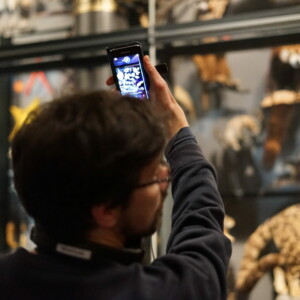
Kooperationspartner
Mediasphere For Nature
Inklusionberatung Kopf, Hand & Fuss
Prototyp
Masterarbeit Fachhochschule Potsdam
“Turator” (2017)
#Konzeption und Durchführung von Workshopformaten & Designsprints #Erstellung eines Klick-Prototypen #User Flow #Personas
